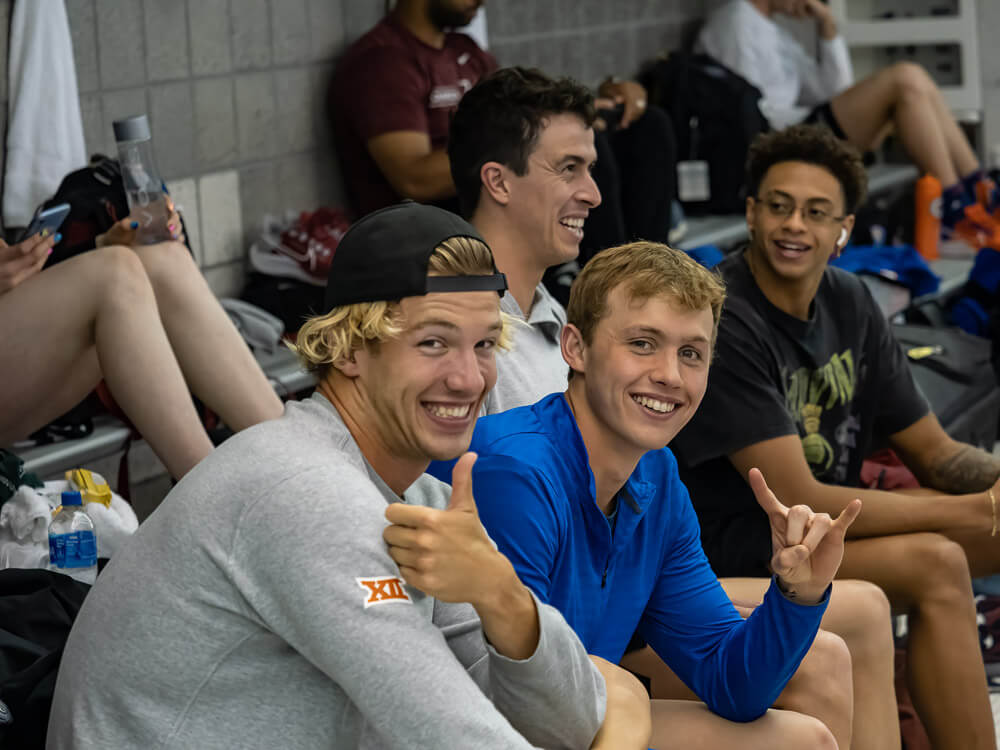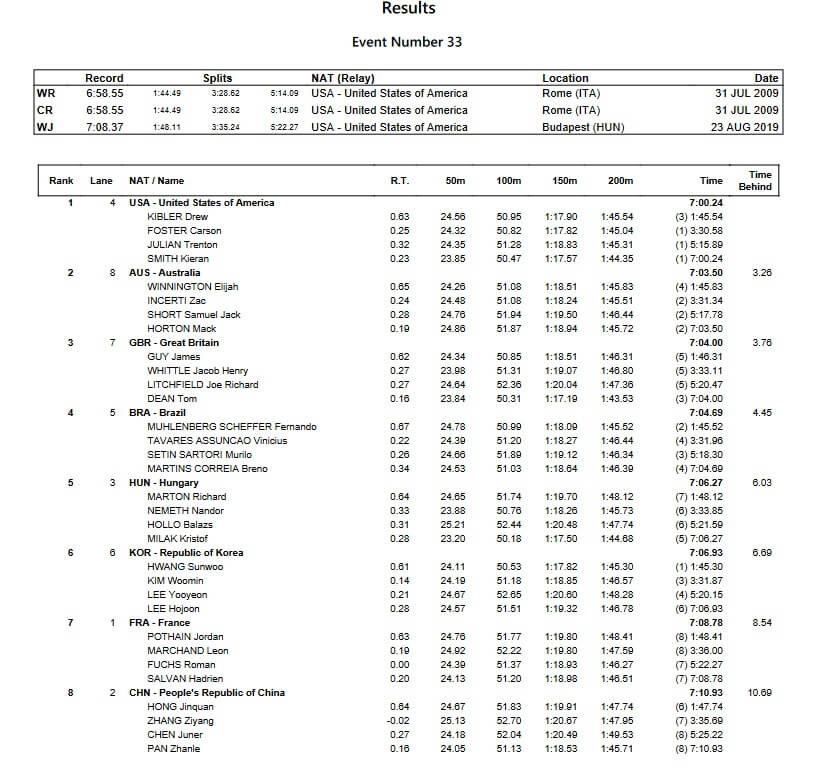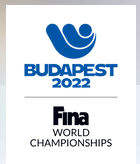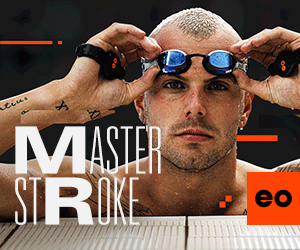World Championships: U.S. Ends 800 Free Relay Drought with Dominant Swim

Editorial content for the 2022 FINA World Championships coverage is sponsored by eo SwimBETTER.
See full event coverage.
Swim faster... faster, with game-changing data insight into your technique. eolab.com #eoSwimBETTER

World Championships: U.S. Ends 800 Free Relay Drought with Dominant Swim
The sting for Drew Kibler hasn’t abated in 11 months. Finishing off the podium in the 800 freestyle relay at the Tokyo Olympics – that’s just something a proud American program doesn’t do. To be part of that foursome was, for Kibler, a regrettable entry on his career ledger.
Thursday, Kibler, Kieran Smith and a pair of new faces took the first concrete step toward rectifying that.
Kibler and Smith, the two Tokyo holdovers, joined Carson Foster and Trenton Julian in dominating the 800 free relay at the 2022 FINA World Championships in Budapest.
The U.S. was never in any jeopardy after Foster seized the lead on the second leg. They won in 7:00.24.
Australia earned silver, though 3.26 seconds back in 7:03.50. Great Britain, who ended its 109-year streak without an Olympic relay medal in the 800 free last year, was third, though they ran fifth most of the way.
For the U.S., it’s their first win in this race at Worlds since 2013, as the mid-distance depth has hit an odd lull. It also softens the blow of finishing fourth in Tokyo (Smith, Kibler, Zach Apple, Townley Haas), .61 seconds behind the Aussies for bronze.
“A lot of us have been talking about this really since the day we got that fourth-place finish,” Kibler said on the NBC broadcast. “That was a tough feeling for Kieran and I, and I know these guys would’ve felt the same. It’s something we strive for in America. We expect nothing but the best, and it feels pretty good to be back on track. We’re just getting started – we’re on the world-record hunt, for sure.”
About that world record – the U.S. never looked a serious threat at it, a 6:58.55 that has stood since the super-suited 2009 Worlds in Rome. But they ended up less than two seconds back. Only Britain at the Tokyo Olympics (6:58.58) and the U.S. at the London Games (6:59.70) have gone faster in textile suits.
Kibler was third after 200 meters, which was to be expected. He went 1:45.54, trailing the best shot of South Korea with Sunwoo Hwang (1:45.30) and Brazil’s Fernando Scheffer (1:45.42). More importantly, Kibler was three tenths up on Aussie leadoff man Elijah Winnington, the 400 free champ, and nearly a second to the good on Great Britain’s James Guy.
Foster took the lead, the silver medalist in the 200 IM and 400 IM splitting 1:45.04. He opened a further half second on Australia’s Zac Incerti and more than two seconds to Great Britain to effectively end the gold chase.
“This one feels the best,” Foster said. “… Relays are my favorite, and to finish it off with a gold medal is really special.”
Foster and Julian earned their way onto the finals squad with 1:45s in prelims, the U.S. qualifying first ahead of Brazil and Hungary. Julian did his job on the third leg in 1:45.31, gouging another second out of Sam Short of Australia and two out of Joe Litchfield. The latter made the 1:43.53 that Tom Dean rocketed off the end academic for gold, though he moved Britain from fifth to third.
“I knew I was on good form so I was hoping for a quick time, but I wasn’t expecting a 1:43-mid,” Dean said. “But when you’re in that arena and you’re in that event, chasing someone down, really special things can happen.”
The British were obviously missing a massive piece in Duncan Scott, the fastest swimmer from last summer’s foursome.
With Australia marooned in the no man’s land well behind the feet of Smith, the American anchor needed little beyond a safe start and a solid swim. He delivered both, going 1:44.35 to cap it.
“I told them in the ready room to do that for me, and they did that,” Smith half-joked. “They delivered and I knew that they would. That was the best feeling in my swimming career, swimming with a lead at the world championships.”
Australia was second. Dean got 0.69 seconds ahead of Breno Correia to demote Brazil to fourth. Brazil’s foursome (Scheffer, Vinicius Assuncao, Murilo Sartori, Correia) set a South American record of 7:04.69. Kristof Milak went 1:44.68 on the end, but the host nation was fifth. The sixth-place South Korean team set a national record at 7:06.93.






